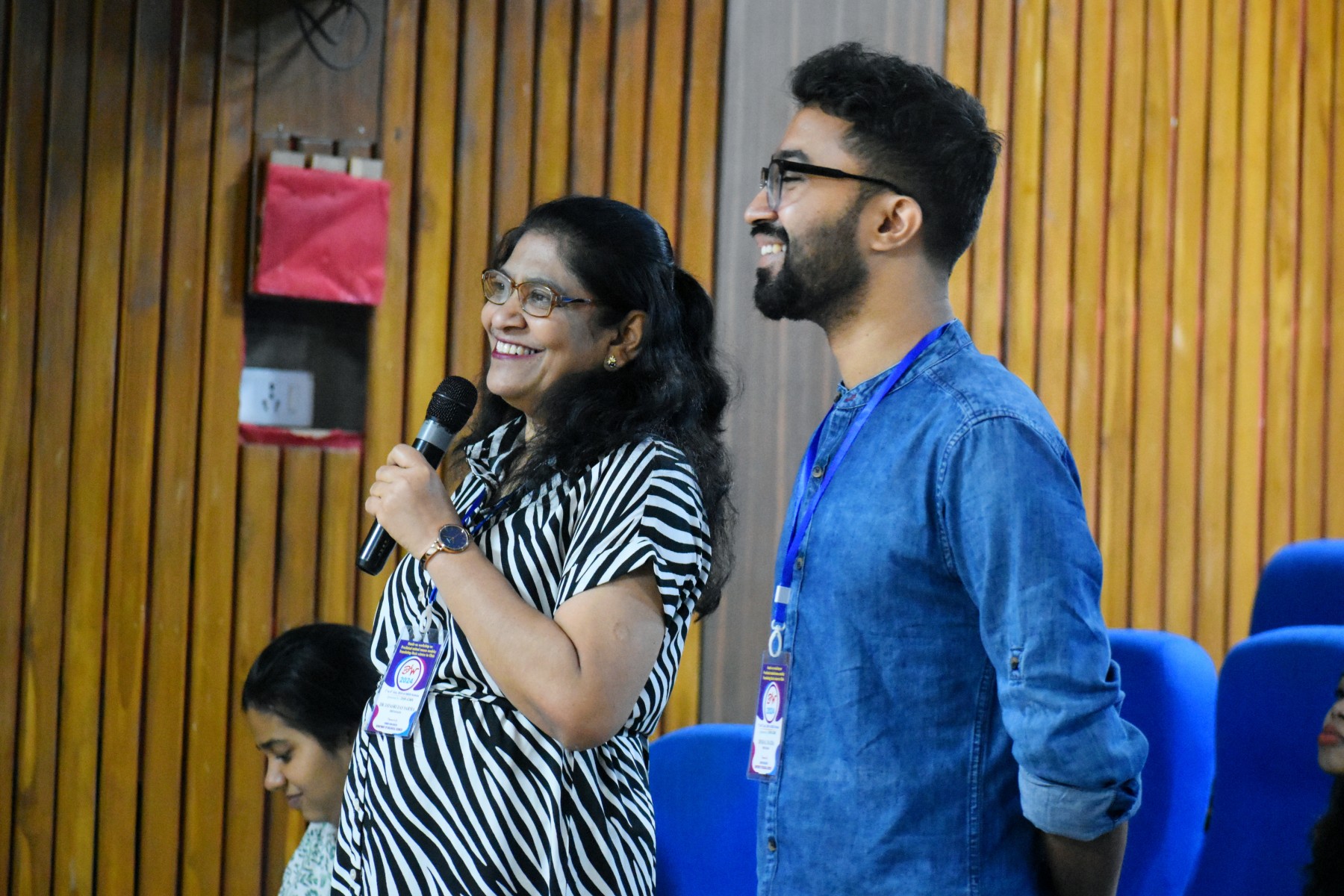
BAW 2025 – Shaping the Next Generation of Biomedical Scientists
Genesis Of The Conference
The Bioanalytical Workshop (BAW) is a specialized conference organized by the Department of Biological Sciences, IISER Kolkata, that integrates hands-on training and interactive learning, aimed at strengthening expertise in the field of bioanalysis. Designed primarily for students and early-career researchers, the workshop focuses on advanced analytical techniques with a strong emphasis on translational research. Its core objective is to enhance scientific competence and equip participants with the tools necessary to contribute meaningfully to cutting-edge biomedical research.
BAW typically attracts participants from diverse backgrounds, including life sciences, medical sciences, pharmaceutical sciences, clinical research, and related disciplines. The program provides both theoretical knowledge and practical experience, thereby fostering technical proficiency and innovation among attendees. The inaugural edition of BAW was held in 2018 in Gangtok, drawing 67 national and international participants. Building on the success of its previous editions, BAW 2025: Frontiers in Disease Biology was scheduled to take place from June 27th to July 1st, 2025, combining a scientific conference with a hands-on workshop focused on preclinical animal models. The overarching goal of BAW 2025 is to align with the pace of evolving research technologies and methodologies. By offering immersive, skill-based training, the workshop aims to empower young scientists with practical expertise in high-demand areas.
About BAW 2025
The Indian Institute of Science Education and Research (IISER) Kolkata conducted the BAW 2025: Frontiers in Disease Biology, a premier five-day conference dedicated to advancing the understanding of disease mechanisms and innovative research approaches in biomedical sciences. Held from 27th June to 1st July 2025, the event brought together leading national and international scientists, early-career investigators, and researchers to share groundbreaking insights into disease biology. The conference featured a dynamic format, blending didactic lectures and hands-on workshops to offer a comprehensive learning experience.
Major scientific disciplines covered in the conference
The BAW conference encompassed rich and interdisciplinary themes that brought together diverse areas of cutting-edge biomedical research. It focused on Infection Biology, exploring host-pathogen interactions and mechanisms of immune evasion. Secondly, Stress Biology and Physiology examined how cells and organisms responded to various stressors and the physiological consequences of such responses. Thirdly, Pathways to Pathogenesis: Molecular Triggers of Diseases highlighted the signaling disruptions and molecular events that initiated and drove disease processes. The conference also addressed Neurodegeneration and the Neurobiology of Diseases, offering insights into the mechanisms underlying neural dysfunction and progressive neurodegenerative disorders. Mechanobiology featured prominently, emphasizing the influence of mechanical cues on cellular behavior and disease progression. In addition, the theme included Tissue Microenvironment and Cancer Biology, investigating how the local cellular and extracellular environment shapes tumor development and metastasis. Lastly, the conference emphasized Translational Frontiers in Human Health, focusing on how basic research findings could be translated into clinical innovations to improve human health outcomes.
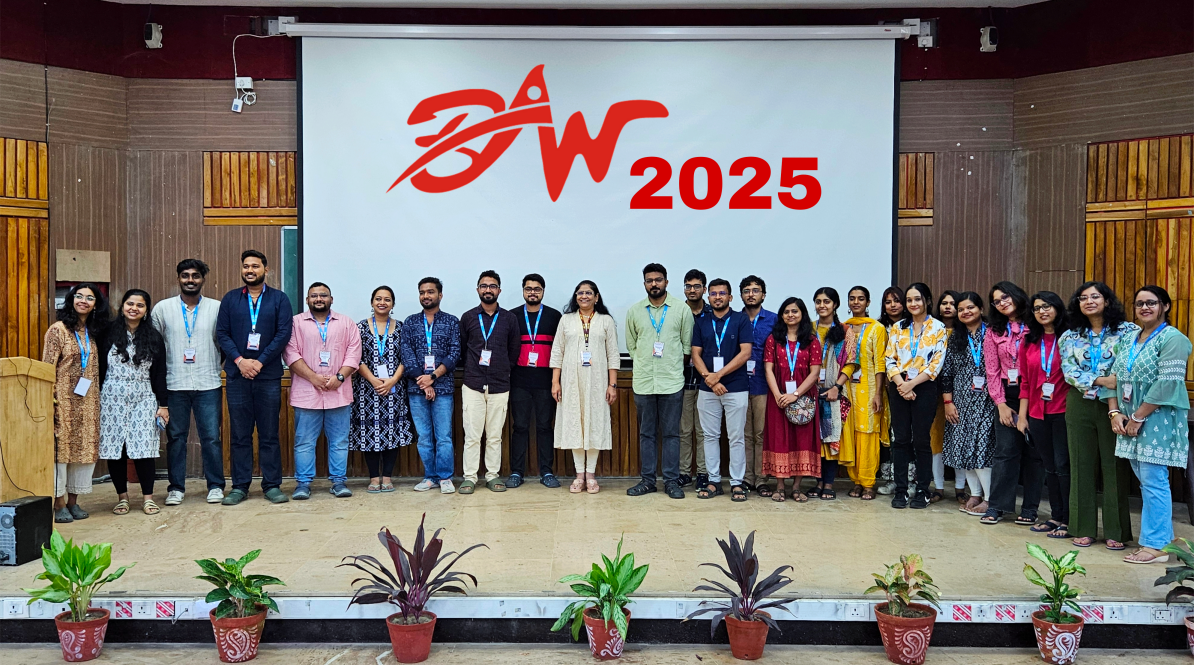
Speakers of BAW 2025
The conference featured an exceptional lineup of speakers, including both distinguished national and international scientists who delivered insightful and thought-provoking talks across a broad spectrum of topics.
International Speakers
-
Ofer Reizes - Cleveland Clinic Lerner Research Institute (LRI), USA
-
Yasuyuki Fujita- from Graduate School of Medicine and Faculty of Medicine, Kyoto University
-
Yusuke Toyama- Mechanobiology Institute, National University of Singapore
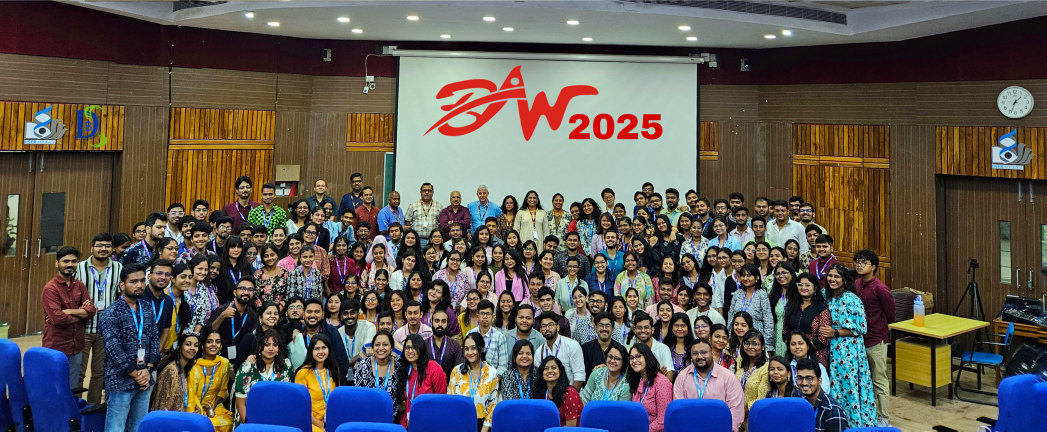
National Speakers
- Partha Pratim Majumder
- Susanta Roychoudhury
- Sushanta Dattagupta
- Chandrima Shaha
- Arup Banerjee
- Prasenjit Guchhait
- Srimonta Gayen
- Partha Pratim Datta
- Rupak Datta
- Ellora Sen
- Anirban Basu
- Pankaj Seth
- Tamal Das
- Abhijit Majumder
- Nagaraj Balasubramanium,
Chairpersons of various sessions
- Jayasri Das Sarma
- Rupak Datta
- Snehasikta Swarnakar
- Biswanath Maity
- Shubhra Majumder
- Malancha Ta
- Subhas C Biswas
- Bidisha Sinha
- Siddhartha Jana,
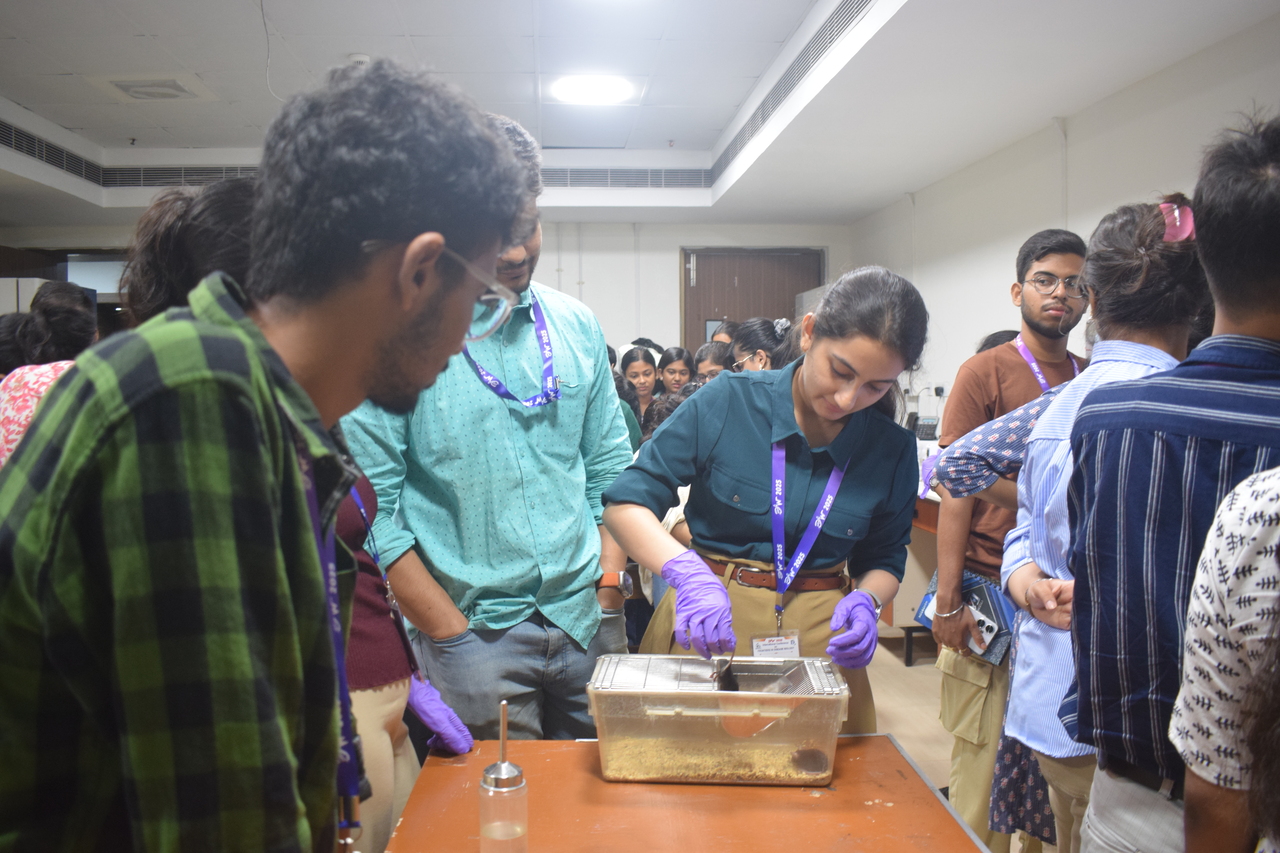
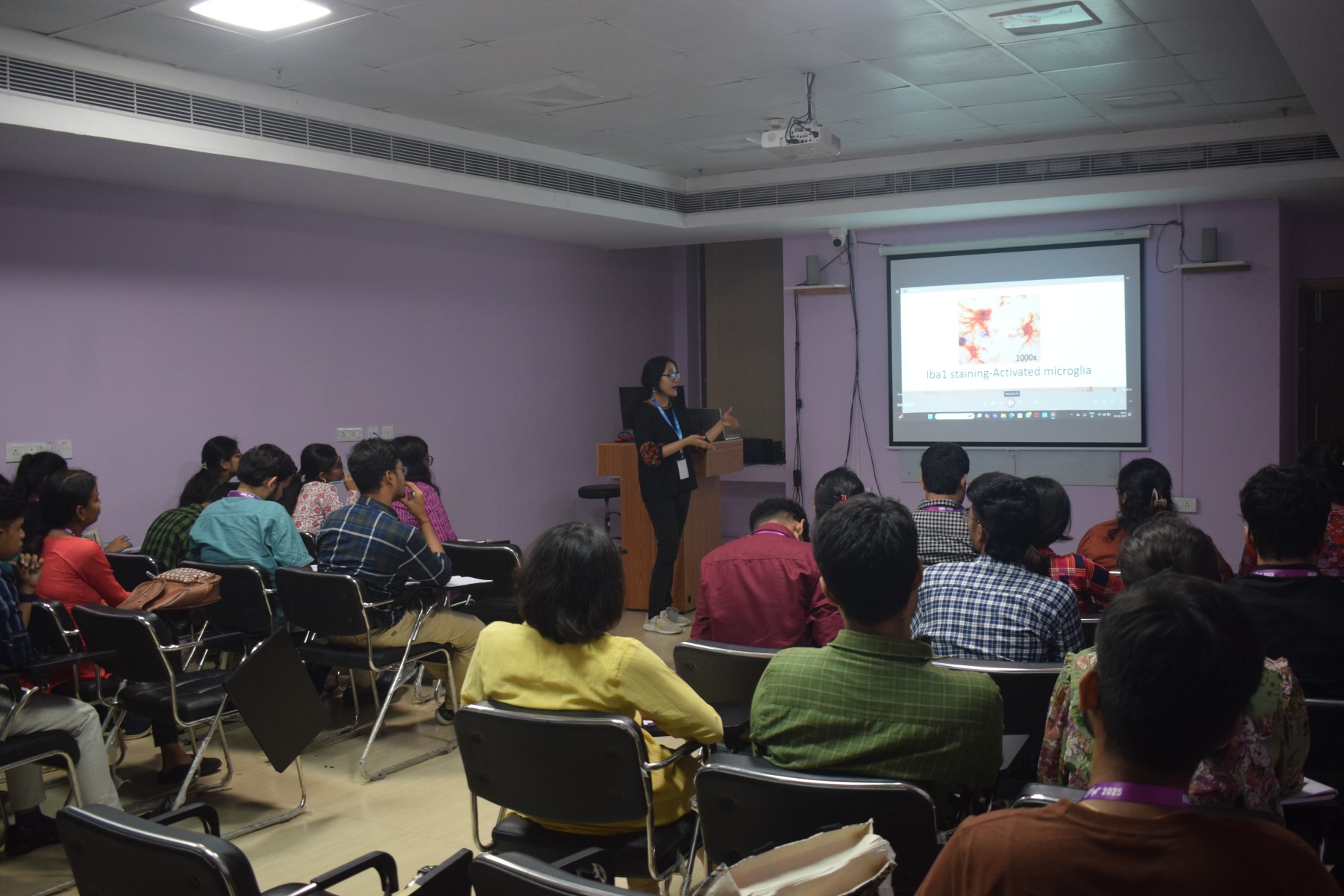
The hands-on workshop on pre-clinical mouse models
The BAW conference offered students a unique and enriching opportunity to engage directly with fundamental experimental techniques widely used in biomedical research. Through dedicated hands-on sessions, they learned essential skills such as Animal Handling, which provided insight into the use of preclinical models for studying disease mechanisms and therapeutic interventions. The Histopathology module introduced them to the microscopic examination of tissues, enhancing their understanding of disease-associated changes at the cellular level. In the Flow Cytometry sessions, students gained experience with high- throughput cell analysis techniques crucial for immunological profiling and disease characterization. Additionally, Microscopy training familiarized them with advanced imaging tools used to visualize cellular and molecular structures in detail.
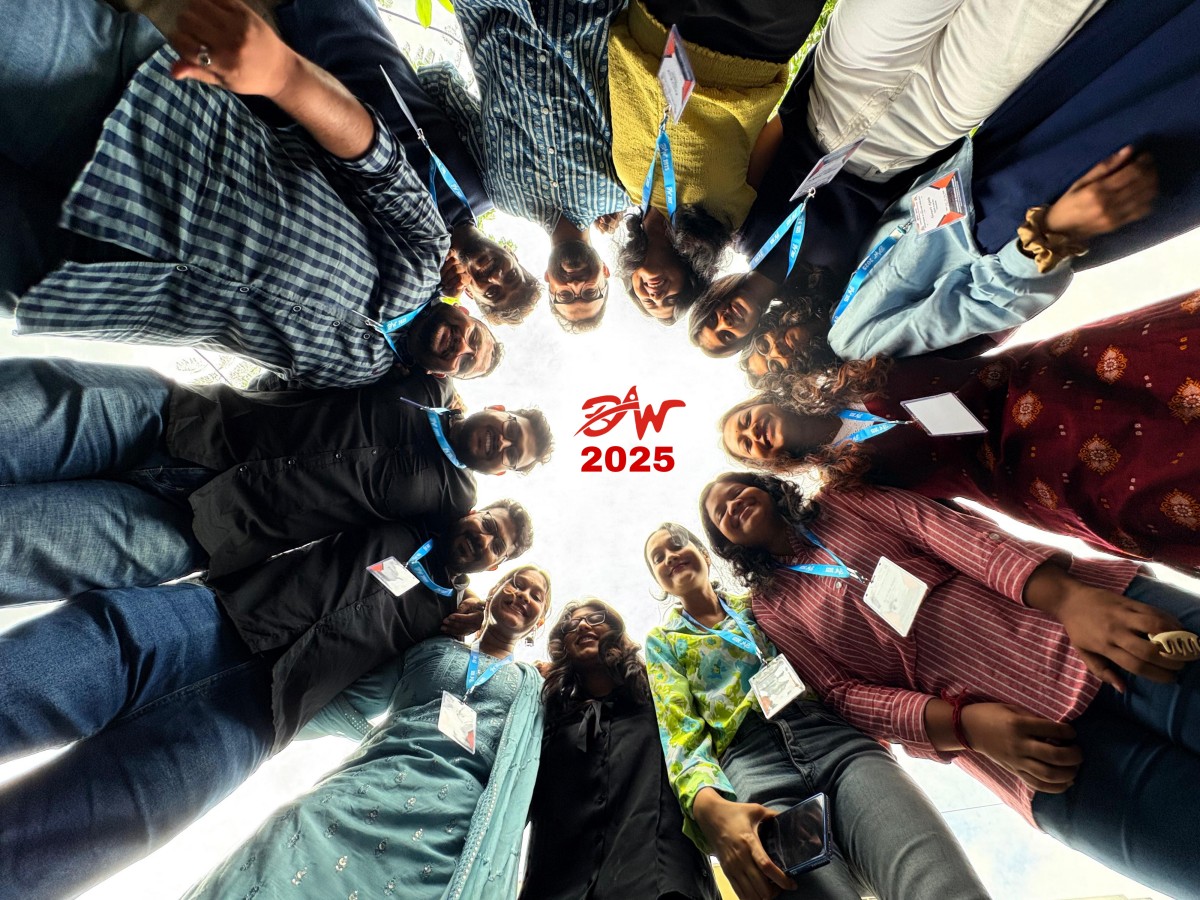
The Spirit of BAW: Student Initiative, Scientific Excellence, and Cultural Expression
What truly sets BAW 2025 apart is its collaborative and student-driven foundation. Unlike conventional scientific conferences, BAW thrives on the passion, dedication, and teamwork of its student organizers. The event reflects the commitment of faculty mentors and the tireless efforts of an exceptionally enthusiastic group of student volunteers who take responsibility for everything. They manage accommodation and travel arrangements, host and anchor events, oversee food and hospitality, capture the moments through photography, and even lead live laboratory demonstrations. Their involvement goes far beyond logistics. It gives them a rare opportunity to develop leadership, organizational, and communication skills that will serve them throughout their careers.
The conference also provides a stage to showcase IISER Kolkata’s state-of-the-art research facilities to national and international participants, strengthening the institute’s presence in the global scientific community. Adding warmth and vibrancy, BAW ends each year with a cultural evening. This is a celebration of art and camaraderie where faculty, students, and participants come together to share their talents in music, dance, drama, and poetry. This unique blend of science and culture creates an atmosphere that is as inspiring as it is welcoming.As BAW continues to grow in scale and reputation, it is set to evolve into a recognized scientific society that will nurture the next generation of bioscience professionals.
Conclusion
Since its inception in 2012, the Bioanalytical Workshop has grown remarkably, attracting an increasing number of applicants each year. About 250 students took part in the 2025 edition, which reflects both the program’s credibility and the transformative experience it offers. One of BAW’s defining features is its student-led model, where young scholars are not just attendees but active contributors. They take charge of organizing and leading the hands-on demonstrations that form the core of the event. Over time, the workshop has expanded well beyond its early focus on neurobiology to embrace multiple areas of disease biology. This year’s theme, “Frontiers in Disease Biology,” reflects that broader vision. Beyond technical training, BAW has become a vibrant platform for networking, professional growth, and peer-to-peer learning. It creates opportunities for meaningful connections that often lead to collaborations shaping the future of biomedical research.
The workshop also ensures that participants feel at home. Each year, they are treated to delicious meals, and 2025 was no exception. The variety, flavor, and quality of the food earned praise from both students and distinguished speakers, adding a thoughtful and memorable touch to the scientific program. The cultural evening provided the perfect conclusion. It was a time to relax, celebrate, and showcase creativity through art and performance. Altogether, BAW 2025 was far more than just a workshop. It was a transformative experience that shaped skilled researchers, encouraged leadership, and fostered a dynamic and close-knit scientific community.
